Search titles
Displaying results 1 to 10 of 46.
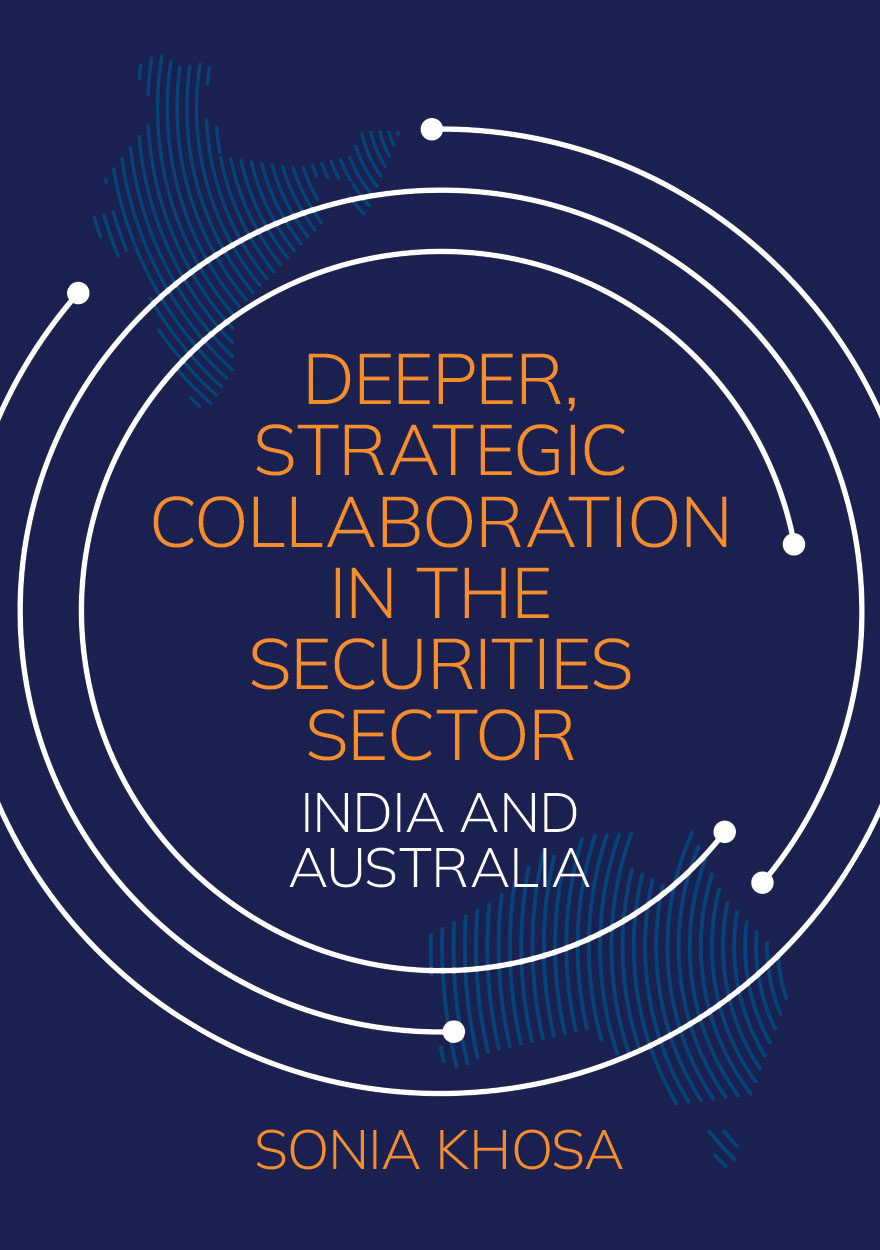
Deeper, Strategic Collaboration in the Securities Sector »
India and Australia
Authored by: Sonia Khosa
Publication date: September 2025
In an era of globalised finance and increasing cross-border activity, regulatory cooperation has become essential for market integrity and development. This book examines the potential for strategic collaboration between India and Australia in the securities sector—two nations with distinct but complementary economic and legal frameworks. Through a comparative analysis of the Securities and Exchange Board of India (SEBI) and the Australian Securities and Investments Commission (ASIC), it evaluates alignment with International Organization of Securities Commissions (IOSCO) principles, focusing on supervisory powers, enforcement mechanisms and compliance effectiveness. The analysis identifies shared regulatory goals and governance principles, highlighting opportunities for bilateral cooperation.
Offering a roadmap for capital market integration and regulatory innovation, the book makes a timely contribution to international financial scholarship. It delivers practical insights for policymakers, legal scholars and regulators interested in forging resilient cross-border partnerships—both within the Indo-Pacific and beyond.
Winner of ANU Press ECR Prize in Legal Scholarship
Format: Hardback
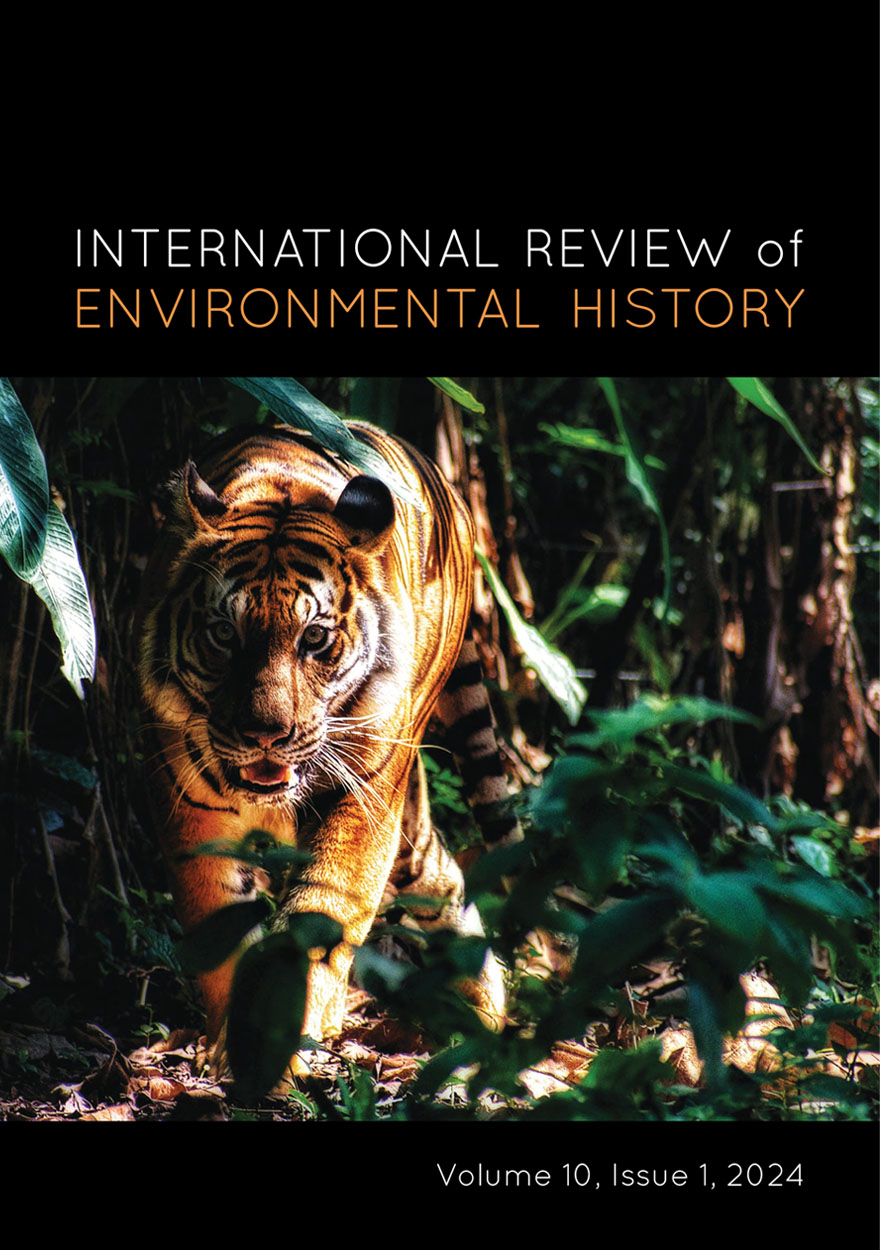
International Review of Environmental History: Volume 10, Issue 1, 2024 »
Edited by: James Beattie, Ruth Morgan
Publication date: October 2024
This latest issue of the International Review of Environmental History takes readers from tiger hunts in sixteenth-century India to the rise of organic foods across the Anglosphere by the late 1970s. Along the way, readers will encounter the ways that Cantonese migrants interpreted the environments of Aotearoa New Zealand at the turn of the twentieth century, and the influence of environmentalism in the US trade union movement during the 1960s. This issue also features a forum on a growing area of interest for environmental historians and allied practitioners, the history of emotions in response to environmental change. Here, scholars outline an historiography of ecological anxiety and reflect on the role of emotions in their historical practice at a time of planetary crisis. Despite the diverse settings and topics of the papers herein, together the collection reveals the enduring impacts of how different societies have understood and shaped the more-than-human world.

East Asia Forum Quarterly: Volume 16, Number 1, 2024 »
Publication date: April 2024
As India charts its post-colonial journey, its pursuit of great-power status intensifies. This issue of East Asia Forum Quarterly delves into India's regional and global positioning, exploring avenues to leverage its economic, demographic and geopolitical advantages. Key insights highlight India's subordinate role to China in the Asia-Pacific, the need for job creation in manufacturing, revamp education and seize opportunities in global manufacturing. As India heads to the polls, its future trajectory hinges on addressing these complexities.
Download for free
Not available for purchase

Visions and Revisions in Sanskrit Narrative »
Studies in the Sanskrit Epics and Purāṇas
Edited by: Raj Balkaran, McComas Taylor
Publication date: November 2023
Sanskrit narrative is the lifeblood of Indian culture, encapsulating and perpetuating insights and values central to Indian thought and practice. This volume brings together eighteen of the foremost scholars across the globe, who, in an unprecedented collaboration, accord these texts the integrity and dignity they deserve. The last time this was attempted, on a much smaller scale, was a generation ago, with Purāṇa Perennis (1993). The pre-eminent contributors to this landmark collection use novel methods and theory to meaningfully engage Sanskrit narrative texts, showcasing the state of contemporary scholarship on the Sanskrit epics and purāṇas.
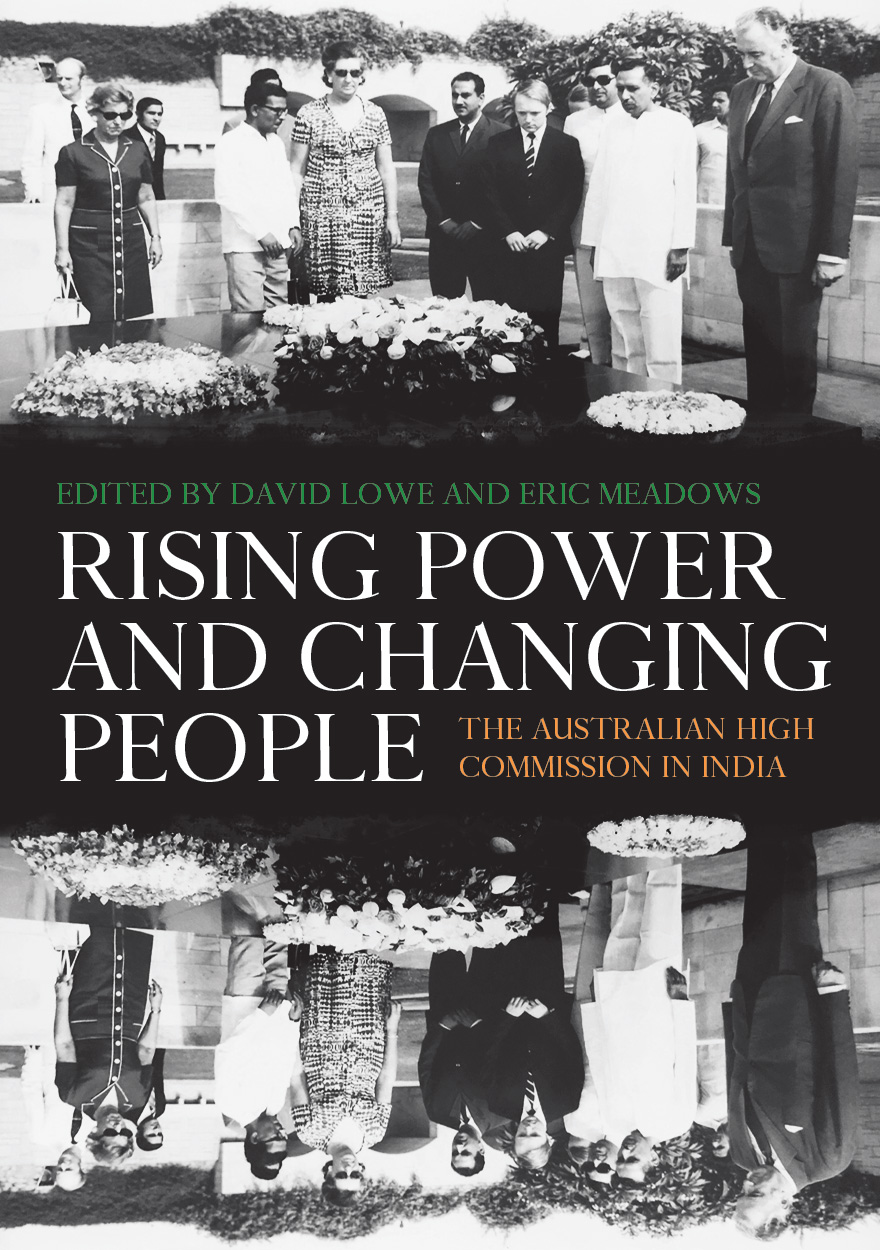
Rising Power and Changing People »
The Australian High Commission in India
Edited by: David Lowe, Eric Meadows
Publication date: September 2022
Beginning in 1943–44, Australia’s relationship with India is its oldest continuous formal diplomatic relationship with any Asian country. The early diplomatic exchanges between Australia and India have teased for their suggestions of potential unrealised, for opportunities missed, especially when compared with the very recent excitement about the future of Australia–India relations. How did Australia’s representatives and their staff in New Delhi negotiate the many dimensions of Australia–India relations? This book brings together expert analyses of the work of the Australian High Commission, its key people and the challenges they faced in New Delhi.
The important India Economic Strategy to 2035 report handed to the Australian Government in mid-2018 begins with the comment: ‘Timing has always been a challenge in Australia’s relationship with India.’ As the Australian Government works to implement some of the ambitious recommendations in the report, this book adds to our understanding of why timing has been a challenge, and how those at the coalface of the relationship have grappled with it.

The Viṣṇu Purāṇa »
Ancient Annals of the God with Lotus Eyes
Authored by: McComas Taylor
Publication date: June 2021
This translation of The Viṣṇu Purāṇa is also available as a free audiobook (see the 'Additional Resources' tab).
Viṣṇu is a central deity in the Hindu pantheon, especially in his manifestation as the seductive cattle-herding youth, Kṛṣṇa. The purāṇas are sacred texts, which, as the Sanskrit name implies, are collections of narratives from ‘long ago’. The Viṣṇu Purāṇa is thus an ancient account of the universe and guide to life, which places Viṣṇu-Kṛṣṇa at the centre of creation, theology and reality itself.
This text, composed about 1,500 years ago, provides a comprehensive and accessible introduction to the most important themes and narratives that constitute the Hindu imagination: the creation and destruction of the universe, the origin of gods and mortals, the peopling of the world, and the structure and conduct of ideal brahminical society.
The Viṣṇu Purāṇa describes the trials of exemplary devotees, the existential struggles between gods and demons, and the exploits of legendary cultural heroes. It also contains many ecstatic songs of praise for the deity. The ever-popular accounts of Kṛṣṇa’s love games with the cattle-herding girls of Vṛṇdāvana, which have proliferated in literature, dance, song and visual arts over the millennia, are found here in authoritative form.
This faithful yet fluent blank-verse rendering of this great Hindu classic is the first new English translation in nearly 200 years. It will be welcomed by the scholarly community, while remaining readily accessible to a general readership.
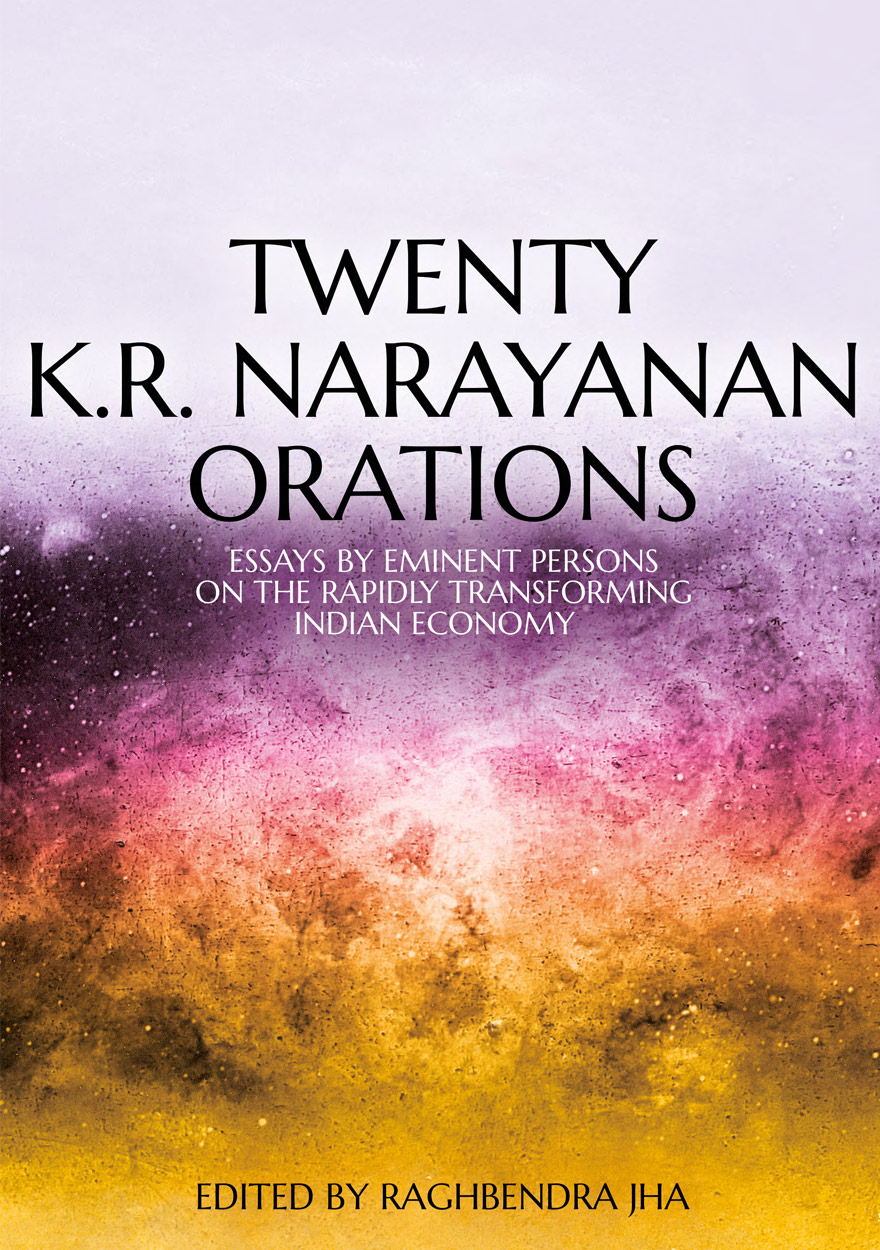
Twenty K.R. Narayanan Orations »
Essays by Eminent Persons on the Rapidly Transforming Indian Economy
Edited by: Raghbendra Jha
Publication date: May 2021
The Australia South Asia Research Centre (ASARC) was established in 1994 in one of the premier universities of the world—The Australian National University (ANU). Apart from its research and doctoral training activities, ASARC also needed a public forum with a global reach to involve the best minds working on economic development in India as well as to honour its founder, Dr K.R. Narayanan, President of the Republic of India. The K.R. Narayanan Oration series was developed in response to these twin needs.
The first oration was held in 1994 and the latest (the 20th) was held in 2018. The first 10 orations were published by ANU Press in 2006. This new edition updates the volume to include all 20 orations delivered so far and provides an updated introduction. All these orations have been delivered by leading academics, scientists and policymakers deeply involved in the transformation of the Indian economy.
This collection of the Narayanan Orations is thus at once both an expert account of key aspects of the economic development process in India and a peek into India’s potential in the future. As such, the publication of this volume marks a watershed in the intellectual debate on India’s economic reforms program and should be welcomed by all those interested in the economic development of the country.

Achieving Inclusive Growth in the Asia Pacific »
Edited by: Adam Triggs, Shujiro Urata
Publication date: August 2020
The world’s developed economies are experiencing a sharp backlash against globalisation, and it appears to be contagious. Will Asia catch it next? Asia has seen spectacular growth in recent decades. It has benefited substantially from global trade, finance, openness and the rules-based international order. But much of the growth Asia has enjoyed has not been shared. It has not been inclusive growth. Inequality in Asia is among the highest in the world. The richest man in Vietnam now earns more in a single day than the poorest person does in a decade. Asia has far to go in making its societies more inclusive to women, ethnic minorities and the LGBT community. How can Asia reduce inequality? What are the forces that determine whether growth in the Asia Pacific is inclusive or not? And what can be done to make Asia’s growth more inclusive in the future? This book brings together the region’s leading thinkers to explore how to change Asia’s trajectory, before it is too late.
The Pacific Trade and Development (PAFTAD) conference series has been at the forefront of analysing challenges facing the economies of East Asia and the Pacific since its first meeting in Tokyo in January 1968.
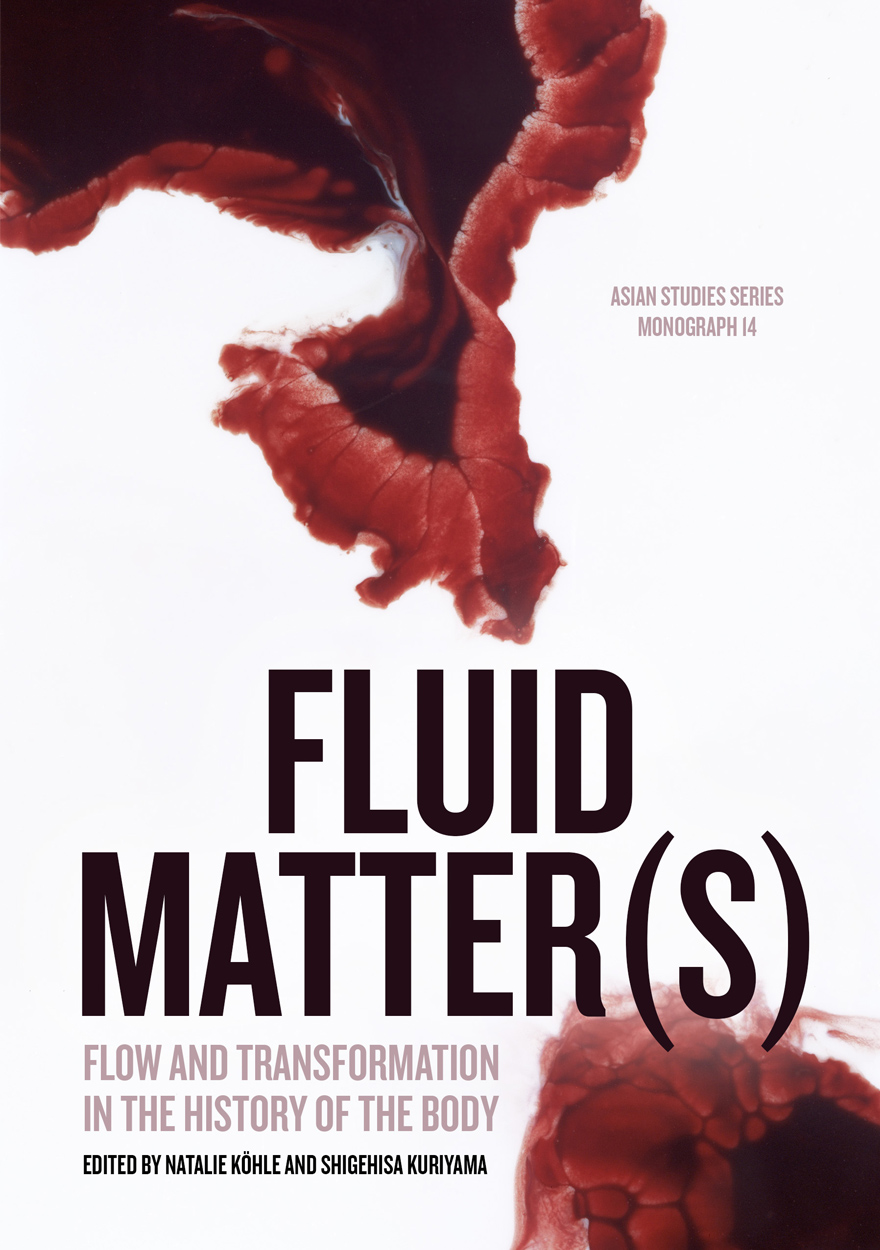
Fluid Matter(s) »
Flow and Transformation in the History of the Body
Edited by: Natalie Köhle, Shigehisa Kuriyama
Publication date: August 2020
Once upon a time, doctors across Eurasia imagined human beings in ways that strike us today as profoundly strange and alien. For over 2,000 years, they worried anxiously about fluids to which our modern doctors spare hardly a thought (such as sweat, phlegm and qi) and they obsessed over details (such as whether a person’s pores were open or closed) whose meaning and vital importance have now largely faded from memory. Through a series of case studies from Europe, India, China, Mongolia and Japan, Fluid Matter(s) suggests ways to make sense of this strange and dimly remembered past, and urges us to reflect anew on the significance of fluids and flows in the history of medicine.
The book also urges us, more generally, to reimagine the way in which we narrate history. The articles here are essays, in the original French sense. They are exploratory trials, experiments to illustrate some of the ways in which digital texts can go beyond the affordances of print. They test visual effects that are inconceivable on a paper page, but that are easily conjured on an electronic screen. Fluid Matter(s) is the first work of its kind: a study that narrates the body’s past in a form that embodies new futures for narrative.
Not available for purchase

International Review of Environmental History: Volume 6, Issue 1, 2020 »
Edited by: James Beattie
Publication date: May 2020
International Review of Environmental History takes an interdisciplinary and global approach to environmental history. It encourages scholars to think big and to tackle the challenges of writing environmental histories across different methodologies, nations, and time-scales. The journal embraces interdisciplinary, comparative and transnational methods, while still recognising the importance of locality in understanding these global processes.
The journal's goal is to be read across disciplines, not just within history. It publishes on all thematic and geographic topics of environmental history, but especially encourage articles with perspectives focused on or developed from the southern hemisphere and the ‘global south’.
Download for free
Not available for purchase



